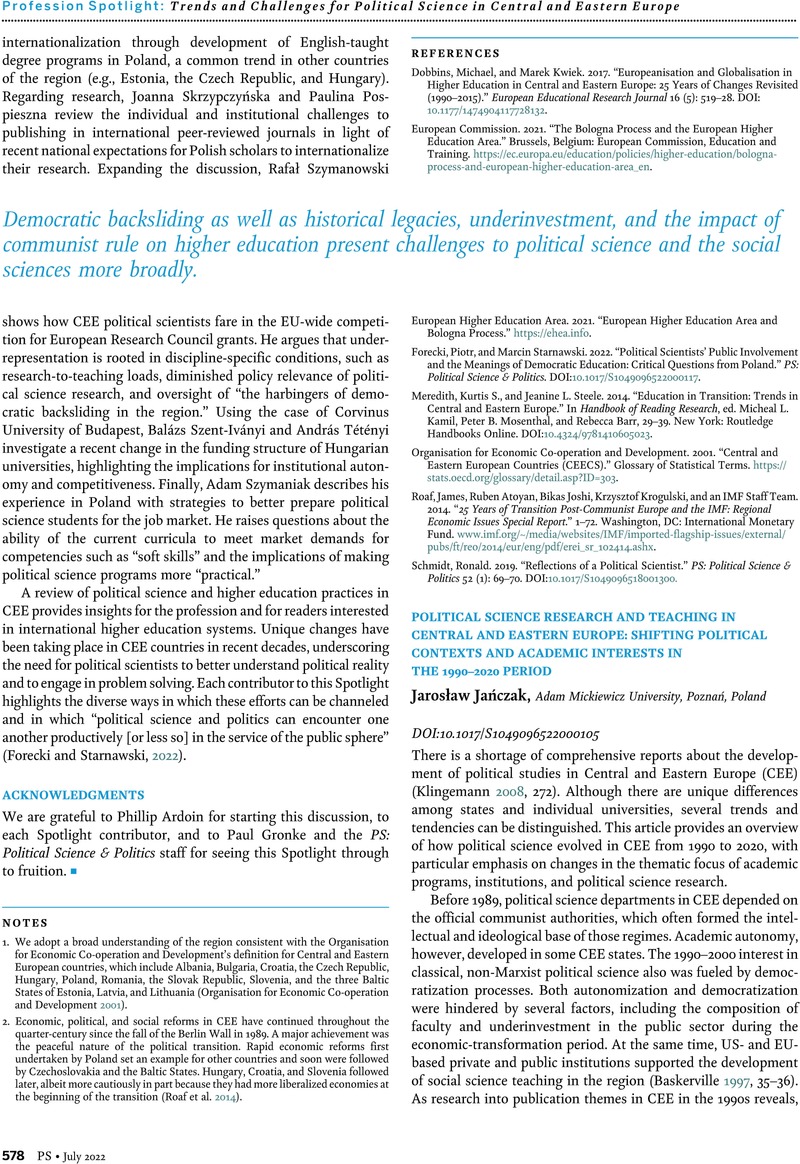Crossref Citations
This article has been cited by the following publications. This list is generated based on data provided by Crossref.
Marleku, Alfred
Peshkopia, Ridvan
and
Voss, D. Stephen
2023.
The Palgrave Handbook of Teaching and Research in Political Science.
p.
181.
Marleku, Alfred
Peshkopia, Ridvan
and
Voss, D. Stephen
2024.
Research-oriented Studies in Political Science: How Research Collaboration Shapes Southeast European Student Learning Preferences.
Journal of Political Science Education,
Vol. 20,
Issue. 1,
p.
31.





